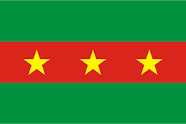Language/Ewe/Grammar/Negation
Hi Ewe learners! 😊
In this lesson, we will learn about negation in the Ewe language. Negation is an important part of any language, and it is essential to understand how to use it correctly. We will look at the different ways to express negation in Ewe, as well as some examples of how to use them.
Negation is a way of expressing the opposite of something. In Ewe, there are several ways to express negation. The most common way is to use the particle mí before the verb. For example:
- Mí dzɔ ɖe mía. - I don't go there.
The particle mí can also be used with nouns and adjectives. For example:
- Míɖoɖo nyui. - I don't have money.
- Míɖoɖo gbɔgbɔ. - I'm not tall.
Another way to express negation is to use the particle míɖoɖo before the verb. This is usually used when the verb is in the past tense. For example:
- Míɖoɖo dzɔ ɖe mía. - I didn't go there.
The particle míɖoɖo can also be used with nouns and adjectives. For example:
- Míɖoɖo nyui. - I didn't have money.
- Míɖoɖo gbɔgbɔ. - I wasn't tall.
Finally, the particle míɖoɖo can also be used to express a negative command. For example:
- Míɖoɖo dzɔ! - Don't go!
Here are some more examples of how to use negation in Ewe:
| Ewe | Pronunciation | English Translation |
|---|---|---|
| Mí dzɔ !! mí dzɔ !! I don't go | ||
| Míɖoɖo nyui !! míɖoɖo nyui !! I don't have money | ||
| Míɖoɖo gbɔgbɔ !! míɖoɖo gbɔgbɔ !! I'm not tall | ||
| Míɖoɖo dzɔ ɖe mía !! míɖoɖo dzɔ ɖe mía !! I didn't go there | ||
| Míɖoɖo nyui !! míɖoɖo nyui !! I didn't have money | ||
| Míɖoɖo gbɔgbɔ !! míɖoɖo gbɔgbɔ !! I wasn't tall | ||
| Míɖoɖo dzɔ !! míɖoɖo dzɔ !! Don't go! |
Now that you know how to use negation in Ewe, it's time to practice! To improve your Ewe Grammar, you can also use the Polyglot Club website. Find native speakers and ask them any questions!
➡ If you have any questions, please ask them in the comments section below.
➡ Feel free to edit this wiki page if you think it can be improved. 😎

